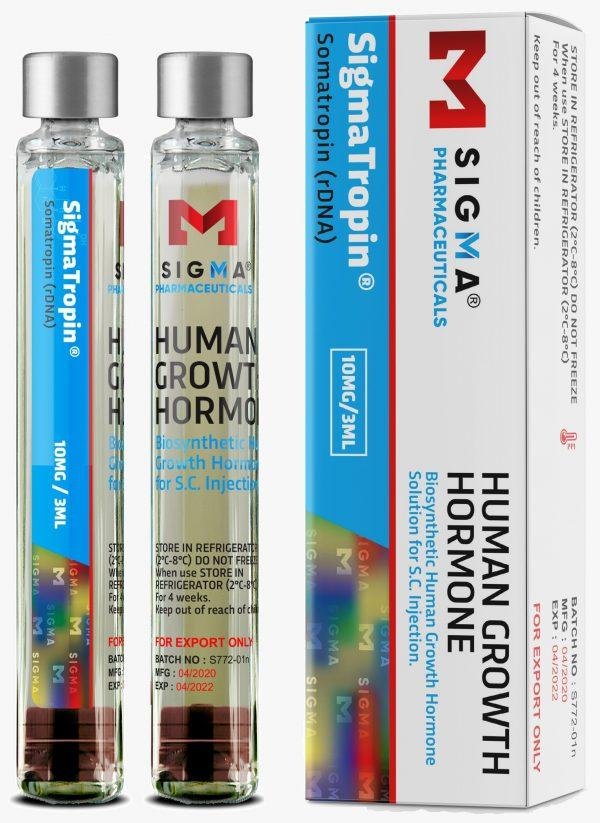What You Should Know About Growth Hormones

Growth hormones are often associated with performance enhancement, but the truth about growth hormones is that they’re not a magic pill.
Growth Hormones
There are a lot of different hormones in our bodies that serve a variety of functions, and growth hormone is one of them. This hormone helps us to grow and develop during our childhood and adolescence, but it also plays an important role in our adult years. Growth hormone helps to maintain our muscle mass, bone density, and metabolism. It also helps to regulate our body composition, fluid balance, and blood sugar levels. As we age, our bodies produce less and less growth hormone. This can lead to a decrease in muscle mass, bone density, and metabolism. It can also cause changes in body composition, fluid balance, and blood sugar levels. Growth hormone replacement therapy can help to offset these effects of aging by increasing growth hormone levels back to what they were when we were younger. If you are interested in growth hormone replacement therapy, talk to your doctor to see if it is right for you.
What are Growth Hormones?
Growth hormones (GH) are natural substances secreted by the pituitary gland. They stimulate growth and cell reproduction. GH levels are highest during childhood and adolescence, which is when bones grow the most. GH levels decline as we age. GH is sometimes used as a treatment for children with conditions that cause them to be shorter than average. It is also sometimes used to treat adults with GH deficiency or other hormone-related conditions. Possible side effects of GH include fluid retention, joint pain, carpal tunnel syndrome, and an increased risk of developing certain types of cancer. GH should only be used under the care of a doctor who can monitor for these and other potential side effects.
The Role of Growth Hormones in the Human Body
Growth hormone (GH) is a protein that is secreted by the pituitary gland. It stimulates growth and cell reproduction. GH also regulates metabolism and body composition. The levels of GH in the body fluctuate throughout the day, with the highest levels occurring during childhood and adolescence. GH levels decline with age. GH deficiency can lead to stunted growth in children and increased body fat in adults. GH replacement therapy can help people with GH deficiency achieve normal growth and body composition. Excessive GH production can cause gigantism in children and acromegaly in adults. Treatment for these conditions typically involves medication to lower GH levels.
Benefits and Drawbacks of Human Growth Hormone Treatment
Many people are interested in human growth hormone (HGH) treatment, but there is a lot of confusion about what it is and whether or not it is effective. This article will clear up some of the confusion and give you information about the potential benefits and drawbacks of HGH treatment. Human growth hormone is a protein that is produced by the pituitary gland. It helps to stimulate growth and cell reproduction. HGH levels peak during puberty and then decline as we age. Some research has shown that HGH levels can be increased with certain medical treatments, such as testosterone replacement therapy. HGH treatment has been touted as a way to turn back the clock and reduce the effects of aging. Some people use it for non-medical reasons, such as to improve their athletic performance or appearance. There are several potential benefits of HGH treatment, including: 1. Increased muscle mass 2. Reduced body fat 3. Improved bone density 4. Improved skin tone and texture 5. Increased energy levels 6. improved mood and well-being However, there are also some potential drawbacks to consider before starting HGH treatment, including: 1. Potential side effects, such as
Types of Somatotropin
There are three types of somatotropin, also known as growth hormone (GH). They are: 1. Human growth hormone (hGH) – this is the most common type of GH and is produced naturally by the pituitary gland. It helps to promote growth and development in children and adolescents. 2. Recombinant human growth hormone (rHGH) – this is a synthetic form of hGH that is produced in a laboratory. It is used to treat children with GH deficiency and other conditions such as Turner syndrome and Prader-Willi syndrome. 3. Somatrem (Serostim) – this is another synthetic form of hGH that is similar to rHGH. It is used to treat HIV-related wasting syndrome.
Conclusion
There’s a lot to know about growth hormones, and it’s important to be well-informed before making any decisions about using them. Growth hormone therapy can be an effective way to treat various conditions, but it’s not right for everyone. Be sure to talk to your doctor about all the risks and benefits before starting treatment.
